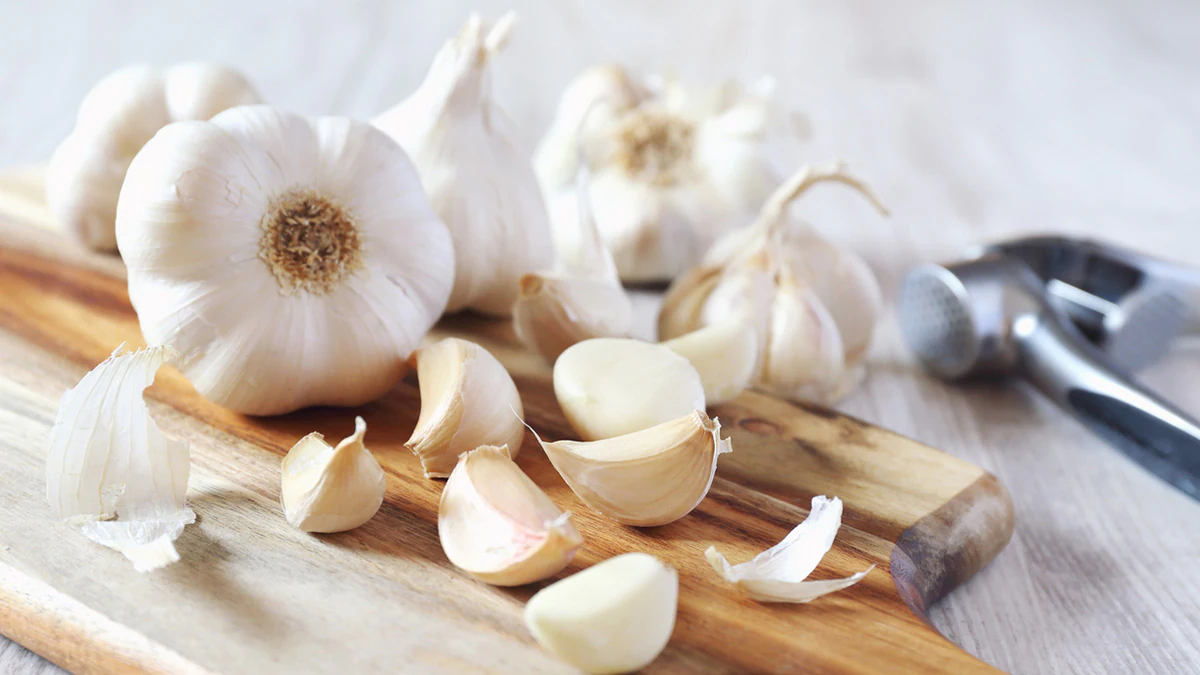- 0086-571-85302990
- sales@greenskybio.com
Nature’s Herbal Antibiotics: Ancient Remedies for Modern Challenges
2025-08-18

As antibiotic resistance continues to threaten global health, ancient herbal remedies emerge as valuable allies with proven antimicrobial effects. From honey and garlic to ginger and oregano, these natural antibiotics have been trusted across millennia—from ancient Egypt to World War II—to combat infections and support immune health. Today, modern science confirms their efficacy, offering hope in an era where traditional antibiotics may falter.
Rediscovering Herbal Antibiotics: Ancient Wisdom Meets Modern Science
1. Honey: Nature’s Golden Healer
For over 5,000 years, raw honey, especially Manuka, has been used as a natural healer. Its unique ability to create an unfavorable environment for bacteria through acidity, hydrogen peroxide, and osmotic pressure is well-documented. Ancient Egyptian practices of applying honey to wounds find validation in modern studies, demonstrating its effectiveness in treating burns, ulcers, and even antibiotic-resistant infections like MRSA. Honey’s ability to moisturize tissues and inhibit pathogens accelerates healing when applied topically.
2. Garlic: The "Russian Penicillin"
Renowned for its antimicrobial properties, garlic contains allicin, a powerful sulfur compound that neutralizes bacteria, fungi, and viruses. During World War II, when penicillin was scarce, Soviet medics utilized crushed garlic to disinfect wounds. Its internal use helps combat gut infections and sinusitis, while topical applications, if carefully used, aid in wound healing.
3. Ginger: Beyond Digestive Relief
While commonly known for soothing digestive discomfort, ginger's compounds like gingerol effectively inhibit bacteria such as Streptococcus and Staphylococcus. With its strong anti-inflammatory properties, ginger is ideal for treating respiratory infections. Research shows ginger tea can reduce fever and speed recovery from gastrointestinal ailments.
4. Echinacea: Immune System Catalyst
Deeply revered by Native American tribes, echinacea is celebrated for boosting immunity and fighting infections. Contemporary research confirms its ability to stimulate white blood cells and inhibit bacterial growth, especially in respiratory tracts. Taken at the onset of illness, echinacea shows promise in suppressing viral and bacterial threats.
5. Thyme and Oregano: Culinary Superstars with Fighting Power
Loaded with carvacrol and thymol, thyme and oregano exhibit strong antimicrobial properties, effective against drug-resistant bacteria such as MRSA. Thyme tea helps soothe sore throats, while diluted oregano oil serves as a potent topical antiseptic. These herbs also offer relief from nasal infections through steam inhalation.
6. Clove: A Potent Spice
Clove oil, rich in eugenol, provides powerful benefits in dentistry for numbing pain and combating oral infections. Its antibacterial properties also make it effective against skin issues like acne and athlete’s foot. However, due to its strength, clove oil should be used sparingly.
Surviving Without Modern Medicine
Before the advent of penicillin, reliance on natural remedies was essential for survival. Historical practices, such as maggot therapy to clean necrotic wounds and Dakin’s Solution—a dilute bleach mixture used in World War I—demonstrate the innovative use of available resources. Fermented foods like sauerkraut were also crucial for voyagers to maintain gut health. These practices were more than makeshift solutions; they were life-saving techniques that built the foundation of medical care in their time.
Practical Applications and Safety Considerations: Responsible Use of Herbs
- Wound Care: Honey and garlic-honey pastes enhance healing, while turmeric's Curcumin helps soothe inflammation. A dilute bleach solution can also safely sanitize severe injuries.
- Internal Infections: Garlic cloves, echinacea tinctures, and ginger-infused teas help combat systemic bacteria and support the immune system.
- Cautions: Despite their benefits, some remedies, like colloidal silver, carry risks such as skin discoloration, known as argyria. Oil of oregano may cause irritation, and allergy tests, such as patch tests, are advisable before topical use.
The “Silver Lining” (Literally)
While silver-based ointments are valuable for treating burns, oral ingestion poses significant risks, including permanent skin discoloration. It is paramount never to substitute herbal treatments for professional medical attention, particularly in severe infections. Integrating herbal therapies with modern medicine can enhance resilience against antibiotic-resistant superbugs, providing a holistic approach to health that leverages the best of both worlds. Always ensure professional guidance when considering herbal solutions for medical conditions.
- ▶ Hesperidin
- ▶ Citrus Bioflavonoids
- ▶ Plant Extract
- ▶ lycopene
- ▶ Diosmin
- ▶ Grape seed extract
- ▶ Sea buckthorn Juice Powder
- ▶ Fruit Juice Powder
- ▶ Hops Extract
- ▶ Artichoke Extract
- ▶ Mushroom extract
- ▶ Astaxanthin
- ▶ Green Tea Extract
- ▶ Curcumin
- ▶ Horse Chestnut Extract
- ▶ Other Product
- ▶ Boswellia Serrata Extract
- ▶ Resveratrol
- ▶ Marigold Extract
- ▶ Grape Leaf Extract
- ▶ New Product
- ▶ Aminolevulinic acid
- ▶ Cranberry Extract
- ▶ Red Yeast Rice
- ▶ Red Wine Extract
-
Coix Seed Extract
2025-08-18
-
Mango flavored powder
2025-08-18
-
Bitter Melon Extract
2025-08-18
-
Dandelion Root Extract
2025-08-18
-
Black Rice Extract
2025-08-18
-
Kelp Extract Powder
2025-08-18
-
Stevia Extract
2025-08-18
-
Red Vine Extract
2025-08-18
-
Uridine-5'-monophosphate Disodium salt
2025-08-18
-
Yellow Pine Extract
2025-08-18





















